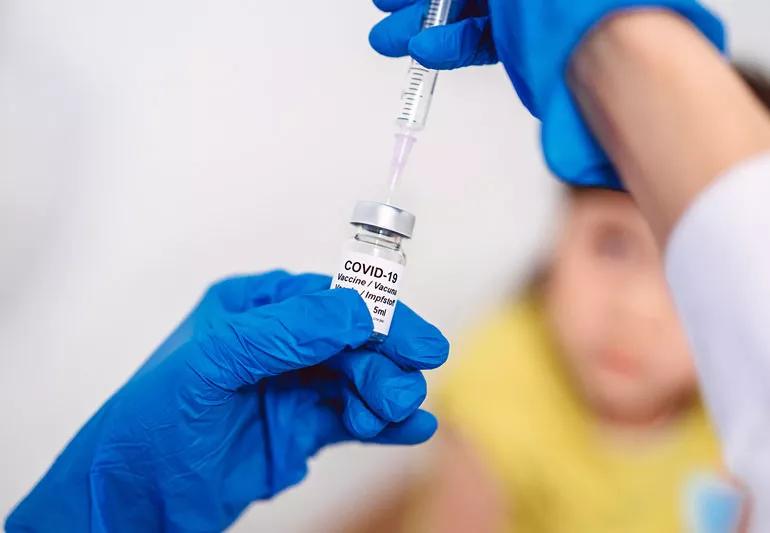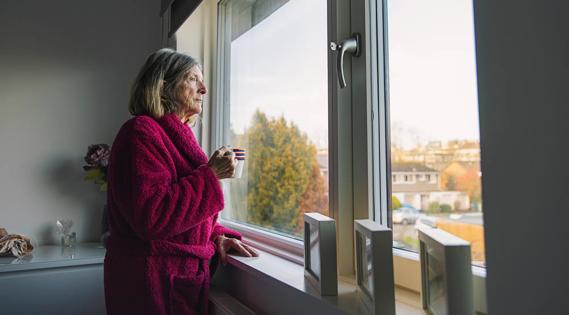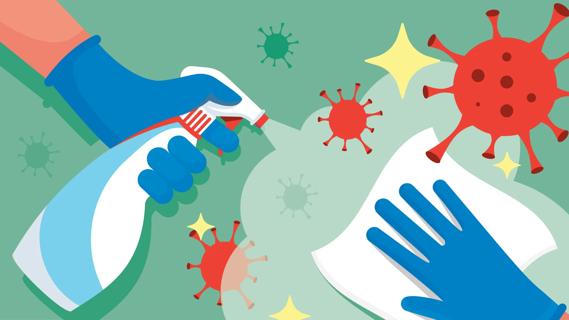Advertisement
The results from a recent trial look promising for 12- to 15-year-olds

When COVID-19 vaccines started popping up for emergency use, you might have felt very hopeful because there was finally a way to protect ourselves from a deadly virus. Or, you might have been a little skeptical because it just seemed like these vaccines materialized way too quickly.
Advertisement
Cleveland Clinic is a non-profit academic medical center. Advertising on our site helps support our mission. We do not endorse non-Cleveland Clinic products or services. Policy
But as Moderna’s, Pfizer’s and Johnson and Johnson’s doses reached people across the country and you witnessed friends, family and neighbors getting vaccinated, maybe your apprehension eased up a little. And now, people are scrambling to get those vaccine cards.
But in the middle of all the excitement and newfound hope, parents couldn’t help but wonder when their children would gain access to the same sources of protection. On the other hand, the scientific community faced a unique set of challenges with ensuring that the COVID-19 vaccines were safe for kids.
Kids weren’t involved in the original adult clinical trials because severe illness from COVID-19 is more common with adults, specifically older adults. And since a child’s immune system is much different from an adult’s, vaccines tend to require different dosage levels or formulations.
Another thing to consider is kids’ immune systems can also be vastly different depending on how old they are. Therefore, kids’ vaccines for COVID-19 couldn’t be one-size-fits-all solutions. Finally, medical trials involving children undergo stricter protocols than those involving adults.
On March 31, Pfizer-BioNTech announced in a phase 3 trial of adolescents between the ages of 12 and 15 years old with or without prior evidence of SARS-CoV-2 infections, their COVID-19 vaccine, BNT162b, demonstrated 100% efficacy and robust antibody responses. These results exceeded those that were recorded earlier in their trial of vaccinated participants between the ages of 16 and 25 years old. This trial included 2,260 kids.
Advertisement
“From the reports so far, it appears that not only does the vaccine elicit a good immune response, but it was very, very safe for the children and adolescents who received the vaccine,” says pediatric infectious disease specialist Camille Sabella, MD. Dr. Sabella was not involved with these trials.
With this trial, 18 cases of COVID-19 were observed in the placebo group (1,129 children) versus none in the vaccinated group (1,131 children). The results showed that the vaccine was equally effective at producing an antibody response in younger children as compared to the teens and young adults from the earlier trial.
Dr. Sabella said that the results from the phase 3 trial will need to undergo peer review and be presented to the FDA for emergency use. Pfizer-BioNTech reported that the side effects were consistent with those reported during their earlier trial with 16 to 25 year olds.
The company stated that all participants in the trial will be monitored for long-term protection and safety for an additional two years after their second dose. They hope that 12 to 15 year olds will be able to get vaccinated before the start of the next school year. The company also announced that it has started a global study to evaluate the safety, tolerability and effectiveness of their COVID-19 vaccine in children between the ages of 6 months to 11-years-old.
According to Dr. Sabella, the immune responses of healthy children tend to be very brisk. This is why kids don’t have too many issues when it comes to vaccination. And this is also why we’ve been so successful in being able to vaccinate them against a lot of childhood illnesses that we don’t see nearly as much as we used to, she says.
“Children’s immune systems, including very young children, generally have vigorous responses to vaccines which is quite remarkable. It appears to be no different with this COVID-19 vaccine. Now, there will be ongoing trials with both the Pfizer and Moderna vaccines down to six months of age, and I expect that these will be equally effective even in the youngest children as well,” says Dr. Sabella, adding that the only way to know this for sure is by performing rigorous trials to show that these vaccines are safe and effective.”
While children have generally experienced milder problems from COVID-19, most children don’t have significant symptoms. However, some children have become severely ill from acute COVID-19 or from post-COVID-19 Multisystem Inflammatory Syndrome in Children (MIS-C). In addition, Dr. Sabella says they can still transmit the virus. That’s why it’s critical it’s to protect them. Doing so can also help get the pandemic under control.
Advertisement
“We have a lot of safe and effective vaccines for children and very young children — things like whooping cough, measles and meningitis vaccines that have been around awhile and they’re extremely safe and effective. The same appears to be true for Pfizer’s coronavirus vaccine and we look forward to being able to add it to the list of vaccines that we have to protect children.”
While we have yet another glimmer of hope, Dr. Sabella believes that vaccinating children really should not be a prerequisite for getting kids back in school.
“We’ve learned over the last few months that children can be in school safely as long as all the precautions are taken to keep them safe with social distancing, masking and proper hand hygiene. Many school districts have done a wonderful job with this. Vaccination will just be one more step in helping people, especially parents, feel more comfortable with sending kids back to school.”
And with sports and other group activities popping back up, Dr. Sabella stresses that it’s still crucial to be cautious and vigilant about pandemic safety guidelines.
“It’s important for kids to do the things that they like doing. It’s good for their physical and mental health. However, we still need to take all of the precautions that are in place. We have to be smart when it comes to group activities and keep in mind that social distancing, good hand washing and masking are still very necessary. We’ve been successful in getting kids back to school because we have maintained pandemic safety protocols. These same precautions should also pertain to a lot of outdoor and indoor social and physical activities as well.”
Advertisement
As for the other two vaccines, Moderna started their study with children under 12 a few weeks ago. The company expects to have 6,750 healthy children in the United States and Canada participate in the trial. Earlier in March, Johnson & Johnson said they were likely to have a COVID-19 vaccine for children under 18 by September. The company also planned to start testing adolescents between the ages of 12 and 17 and then down to infants. Pregnant women in their second and third trimesters are expected to be studied between the end of March and early April.
Advertisement
Learn more about our editorial process.
Advertisement

Studies have shown promising results, but additional research is needed

Infection and inflammation can cause you to lose your voice and have other voice changes until you’re fully healed

A COVID-19 infection can bring on depression or anxiety months after physical symptoms go away

Just like the flu, COVID-19 continues to evolve every year with new and smarter variants

The latest omicron subvariants carry specific mutations that may allow the SARS-CoV-2 virus to be better at evading immune protection

You can work out with mild COVID-19, but not in a gym, and listen to your body and don’t overdo it

Most people can return to work and regular life when they’re symptom-free for 24 hours

Lysol Disinfecting Wipes are just one of more than 500 products approved by the EPA for protection against the SARS-CoV-2 virus that causes COVID-19

If you’re feeling short of breath, sleep can be tough — propping yourself up or sleeping on your side may help

If you fear the unknown or find yourself needing reassurance often, you may identify with this attachment style

If you’re looking to boost your gut health, it’s better to get fiber from whole foods